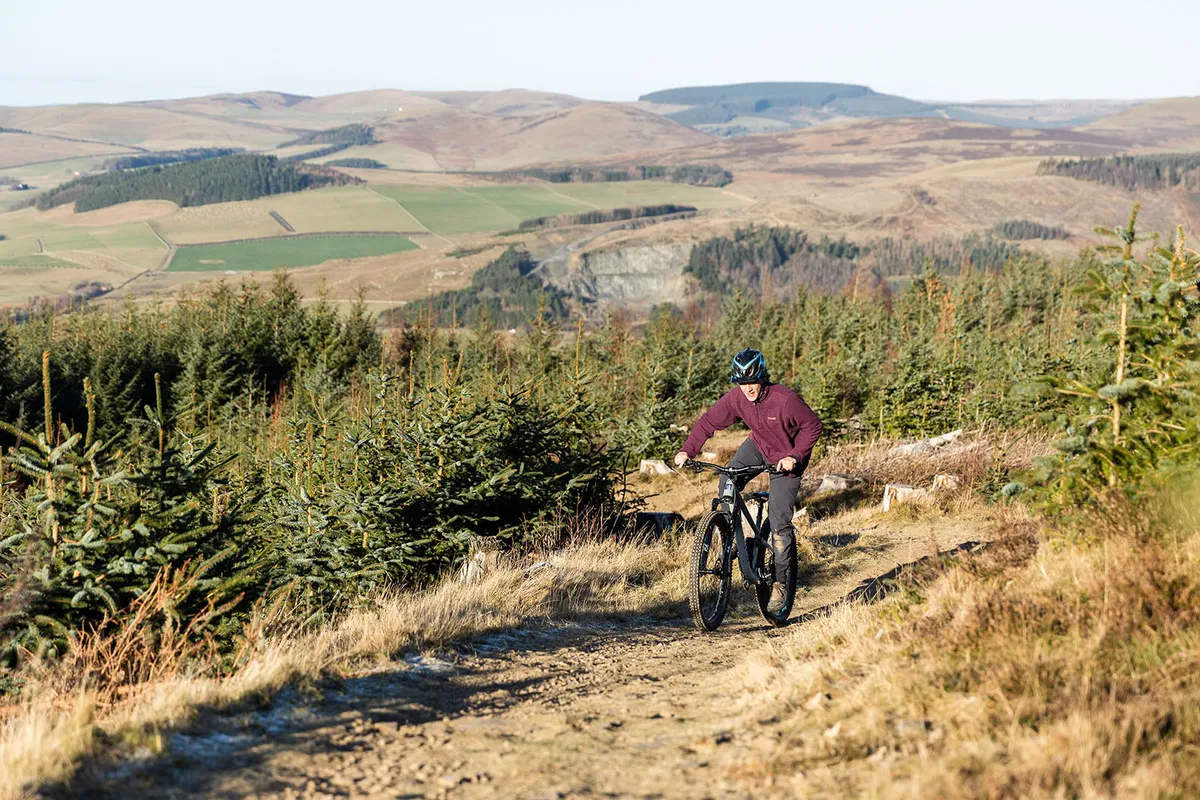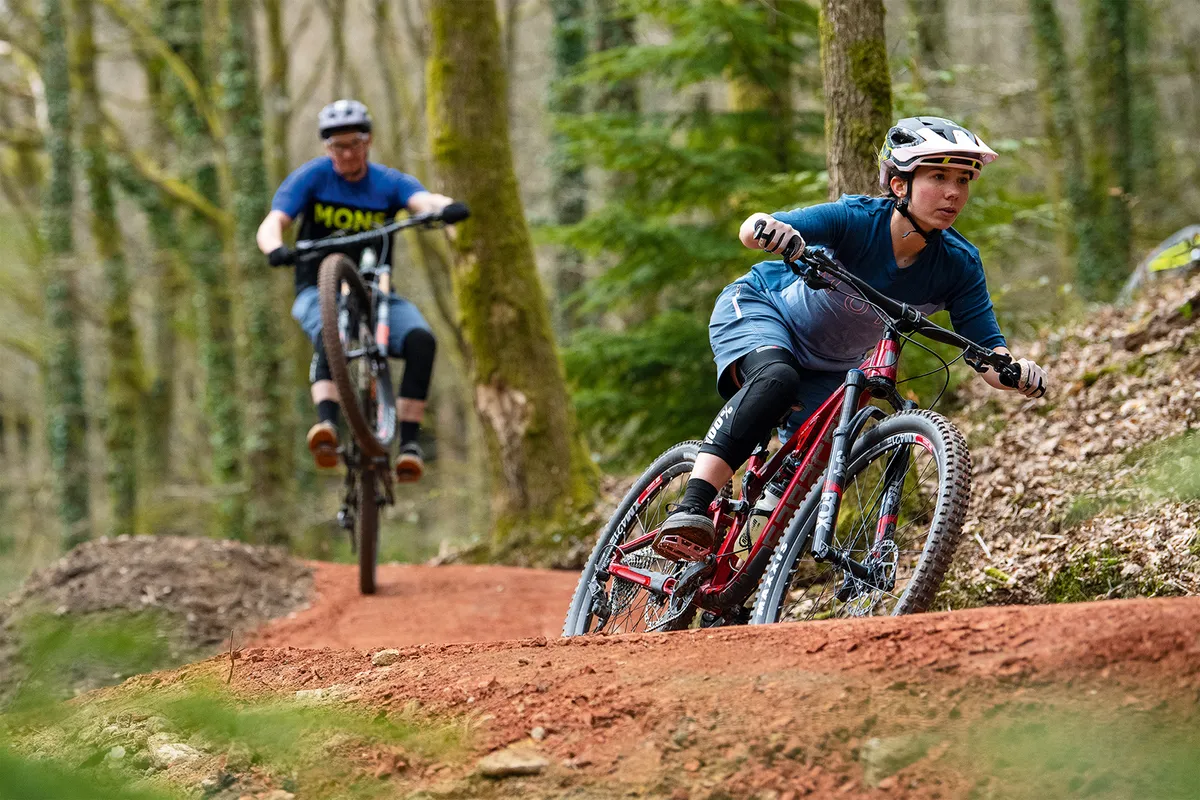In recent years, mountain biking has soared in popularity, attracting enthusiasts from all walks of life to forests and woodlands.
Yet, in England, there’s a looming threat to the livelihood of MTB coaches and guides – the implementation of Forestry England’s most recent pricing structure.
Forestry England has long charged skills coaches and MTB guides a licence fee to operate on their land. Initially minimal, these fees have now taken a significant turn, demanding 20 per cent of total revenue generated from providing services on Forestry England land, under the National Pricing Strategy.
For small businesses already grappling with the challenges of maintaining equipment, paying staff, ensuring safety and delivering quality experiences, this significant financial strain poses a formidable obstacle.
Narrow profit margins

Many small businesses operate on narrow profit margins and diverting a fifth of their revenue towards licensing fees could prove unsustainable.
In the Forest of Dean, in Gloucestershire, businesses are facing significant challenges. They've witnessed a decline in customers and staff losses, and have been compelled to reduce salaries just to stay afloat. If these conditions persist, many of these businesses face relocating or shutting altogether.
In conversations with several providers, it has become evident that some are contemplating shifting their operations across the border into Wales, drawn by the potentially advantageous pricing structure there.
However, Natural Resources Wales (NRW) informed BikeRadar that the pricing structure is currently under review. Changes are on the horizon, but it remains to be seen what these will be.
Meanwhile, there's already a noticeable trend of mountain biking events and races migrating to Scotland, where event pricing is perceived as more reasonable.
A prime example is the PMBA Enduro series, which began in 2013 in the Gisburn Forest, Lancashire, but will have events in Scotland’s Ae and Kirroughtree forests this year.
Is this the fairest option?

When questioned about the rationale behind its decision to implement a 20 per cent revenue share, Forestry England lacked clarity.
Its response referenced an examination of different pricing models, with this particular percentage deemed the "fairest" option.
However, obtaining a direct and transparent explanation has proven challenging, leaving providers, and BikeRadar, unsure of the origin of the 20 per cent revenue figure.
As well as impacting small MTB skills coaching and guiding businesses, the decision will have broader implications for the future of mountain biking.
According to David Windebank, co-owner of WyeMTB, based in the Forest of Dean, the company’s role extends beyond coaching and guiding: "We take people away from their normal lives and give them safe, engaging and mindfulness sessions, which allows them to grow both mentally and physically."
This sentiment resonates with Forestry England's own goal of “improving the health and wellbeing of the nation”.
Katy Curd, from Katy Curd Coaching, echoes Windebank’s concern, emphasising the crucial role coaches play in ensuring safety on the trails: "Effectively, we're keeping people safe, with eyes on the trails daily, coaching safer riding practices to reduce accidents and alleviate stress on the NHS. Additionally, we attract visitors to the area, fostering returning clients and injecting money into the local economy."
These individuals are not just businesses: they are the lifeblood of the MTB community, serving as mentors, educators and guardians of safety. Their expertise transforms trails into classrooms, where riders of all skill levels can learn, grow and connect with nature. However, with Forestry England's new fees looming overhead, the viability of their operations hangs in the balance.
The frustration among some coaches and business owners is compounded by the lack of clear communication and consistency regarding the implementation of the new pricing strategy.
This issue is particularly evident in the Forest of Dean, where businesses are grappling with price increases. Conversely, counterparts in Shropshire have yet to receive any official communication about when the new pricing structure will come into effect.
The National Pricing Strategy was designed to provide "fair and consistent pricing across the country", according to Forestry England representative Rebecca Ulewicz. But this assertion may not accurately reflect the current situation, where there are differences in price across the country.
Ulewicz explained there may be discrepancies in pricing currently because some areas are on a “time-limited agreement [and] once those agreements expire, they'll switch over to the new system”.
Ulewicz also said pricing may differ between districts because each district has its own priorities, but she noted that “the principles for charging are consistent across the country”.
Financial pressures nationwide

The mountain bike businesses we spoke to aren't contesting the necessity of payment for the use of Forestry England land. Rather, their concern lies with the fairness and sustainability of the pricing structure.
In conversations with several business owners, it became clear they recognise the increasing financial pressures nationwide due to the cost of living crisis. They also appreciate the significant effort involved in maintaining the forests.
Their concern is that a percentage based on revenue is completely unsustainable and unfair; instead, a fixed rate, or even a percentage of profits, would enable coaches and guides to operate sustainably.
In some areas, Forestry England has run the new pricing system since 2021.
The agency, sponsored by the UK’s Forestry Commission, the government department responsible for promoting and maintaining woodlands, says it has reviewed the system and made adjustments, and continues to monitor feedback.
However, several small business owners told BikeRadar it seems their concerns and feedback are falling on deaf ears.
It is becoming increasingly evident that the concerns of small mountain bike guiding and coaching businesses are being overlooked in some areas of England. In response, providers have taken action by initiating a petition urging Forestry England to re-evaluate its pricing structure.
Without timely intervention, many of these businesses are at risk of closure.

